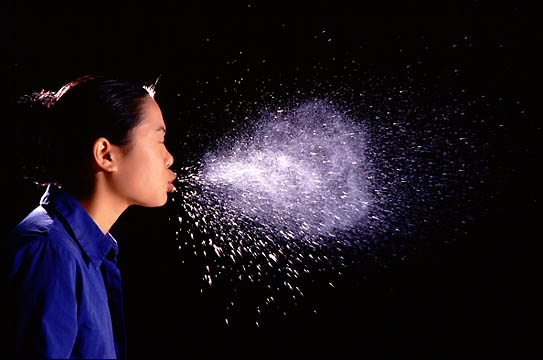There’s one tragic thing about the flu: no matter how healthy you are and how well you try to avoid it, anyone can fall to this mighty virus during flu season. Having a strong immune system is a good defense, but when the body comes into contact with the virus it can’t help but feel beaten. It takes the body about 2 weeks to build an immunity to the influenza virus.
10 Steps to Beat a Flu
Flu symptoms can make you feel miserable – you can feel a bit feverish, get a sore throat, runny nose, and body aches. Being sick and stuck in bed isn’t fun for most people, so let’s take a look at the ways that we can fight against the flu virus.
-
Wash your Hands
- The most common way for germs to spread is through physical contact. Hand washing is especially important before and after using the bathroom, when coughing and sneezing, and before eating. It’s a habit that pays off.
-
Get Vaccinated
- Vaccination arms your immune system with the defenses it needs before you even get into contact with the virus. Getting vaccinated helps other people around you. Many diseases have been eradicated from our lives through “herd immunity” or getting most of the population vaccinated and immune to the disease so that it has no means of spreading.
-
Use a Tissue or Handkerchief
- Sneezing or coughing into your hands means you are getting the virus on them. When you touch objects that other people use like doorknobs, all you are doing is spreading the virus around. Coughing into a handkerchief or even into your elbow in a pinch helps a lot in preventing the virus from spreading.

-
Don’t Treat the Symptom
- This may sound counterproductive, but when you get the fever it means your body is fighting the infection naturally with a hotter-than-normal environment that is inhospitable to viruses. It also gets your blood circulating faster, carrying white blood cells that kill germs around your body to fight off the invading pathogens. Taking medications to lower your fever might actually prolong your recovery time.
-
Drink a lot of Liquids
- The first line of defense against many infections is the mucous membrane in the nose. This traps the virus and keeps it from getting into your body, but it only works properly when it’s moist. That’s where drinking lots of water come in. And if you do get infected, water is crucial in boosting your immune response to fight off the bug. Drink plenty of water all the time, but especially when you are sick.
-
Get some Rest
- The body needs to fight off an infection. To do that, it needs rest. When you are sick, your body literally becomes a war zone for your immune system and the infectious pathogen. Just as drinking water arms your body with the fluids it needs to mount a response, getting rest ensures your body has the opportunity to use that defense.
-
Eat Power Foods
- There are various foods scientifically proven to help fight infections. Garlic and ginger have antiviral properties that help fight the flu. Miso soup is known to boost the immune system as well as help with digestion; while chicken soup has carnosine, a compound that strengthens the immune system.
-
Gargle with Salt
- Gargling not only helps moisten the throat and mucous membranes, but it also helps relieve symptoms. Gargling with salt water has an added benefit: salt water creates an osmosis reaction due to the sodium imbalance, and this can draw water outside of a cell, being potentially lethal to many bacteria and viruses, including the flu virus. While not all viruses are susceptible to salt water, this technique is known to work well with the flu virus.
-
Blow your Nose Properly
- When you have a runny nose you will likely clear it by blowing your nose a lot. But there’s a proper way to do it. Blowing too hard causes a lot of pressure in the nasal passages, and this can carry germ-laden phlegm back into your system, keeping you sick and causing earache. The better way is to press a finger over one nostril and gently clear the other out with a light blow.
-
Keep your Air Clean
- Studies have shown that air pollution increases the chance of getting sick with the flu. Particulate matter stays in the air and provides surfaces for virus droplets to condense onto and attach. These particles are small enough to stay airborne for extended periods of time, increasing the chance of inhaling them and getting the virus into your system. Ensuring that you have clean air with no particulates is a great way to fight the flu and stop it from spreading.
While getting sick may keep you bed-ridden, recovery doesn’t have to be a long and miserable process. More importantly, infections are preventable and keeping a healthy home environment with clean air is one of the key ways to prevent the spread of infection. After all, prevention is better than cure. Healthy living is its own reward. It pays to know what your family is breathing in.








